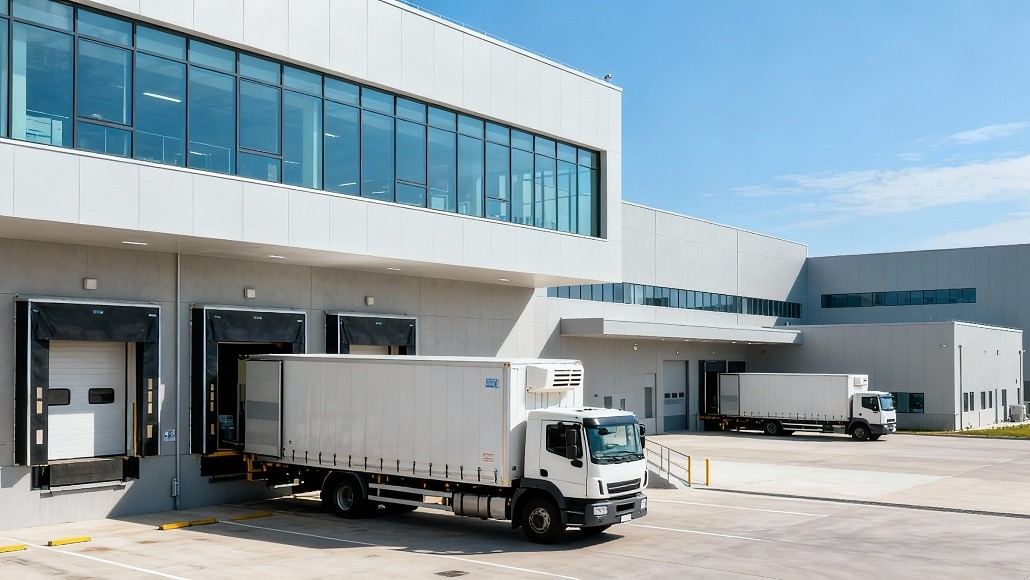The contract development and manufacturing organization (CDMO) sector is experiencing unprecedented growth as pharmaceutical companies fundamentally reassess their manufacturing strategies. Once viewed as a tactical solution for capacity constraints, outsourcing to specialized CDMO partners has evolved into a strategic imperative that drives competitive advantage, accelerates time-to-market, and enables companies to focus resources on core innovation activities. The global CDMO market is projected to expand from USD 173 billion in 2024 to USD 323 billion by 2033, representing a compound annual growth rate of 7.2%—a trajectory that reflects systematic shifts in how the industry approaches drug development and commercialization.
The Strategic Imperative Behind Outsourcing Growth
The fundamental driver of CDMO expansion lies in the profound complexity of contemporary drug development. Pharmaceutical companies increasingly pursue sophisticated therapeutic modalities—monoclonal antibodies, antibody-drug conjugates, cell and gene therapies, and mRNA-based medicines—that demand specialized manufacturing expertise and infrastructure. Rather than building redundant manufacturing capabilities internally, leading pharma companies are strategically outsourcing to partners equipped with proven platforms, existing regulatory approvals, and deep technical expertise in these complex molecules.
Pharma outsourcing has expanded dramatically over the past decade. The percentage of global pharmaceutical production outsourced to CDMOs has risen from 34 percent in 2014 to 49 percent in 2023—a remarkable shift that underscores how thoroughly the industry’s approach to manufacturing has transformed. This trend accelerates further as companies confront mounting pressure to reduce development timelines, accelerate cash flow, and minimize capital intensity.
CDMO expansion is particularly pronounced in the biologics sector, where manufacturing complexity and regulatory barriers create substantial advantages for specialized operators. As of 2025, demand for mid- to large-scale biologics manufacturing capabilities continues intensifying, with long-term contracts emerging as a critical growth driver. Industry analysts project that by 2030, top-tier CDMOs could capture more than 55 percent of the biologics manufacturing market, with quality, scale, and reliability emerging as critical differentiators in an increasingly competitive landscape.
Complex Molecule Development and Specialized Expertise
Pharmaceutical companies pursuing outsourcing strategies recognize that specialized expertise represents irreplaceable competitive advantage. Large molecule drug discovery outsourcing alone—encompassing peptides, recombinant proteins, and gene-modifying agents—represents a market estimated at USD 2.89 billion in 2024, projected to reach USD 4.83 billion by 2030. This expansion reflects pharmaceutical companies’ deliberate pivot away from internal development toward external partnerships with organizations possessing concentrated expertise in bioassay development, structural biology, and functional screening.
CDMO partners offer advantages that transcend simple manufacturing capacity. They provide access to proprietary platform technologies, established regulatory relationships with global health authorities, and institutional knowledge accumulated across diverse therapeutic programs. For companies developing complex modalities like bispecific antibodies or multi-specific protein constructs, partnership with specialized CDMO providers accelerates development velocity while reducing technical risk.
The pharmaceutical industry particularly values CDMOs’ capacity to accommodate complex chemistry requirements. Custom chemistry services—essential for optimizing pharmacokinetics and minimizing immunogenicity in biologics—have become increasingly critical in competitive drug development. CDMOs equipped with advanced analytical techniques, GMP-grade reagents, and scalable synthesis platforms enable faster iteration of promising molecules while ensuring regulatory compliance from development inception.
Flexible Production Models and Scalability Solutions
Flexible production represents another compelling reason for increased pharma outsourcing. Traditional in-house manufacturing infrastructure operates most efficiently at fixed production volumes with long lead times for product transitions. CDMOs, by contrast, design facilities and processes specifically to accommodate variable demand, diverse product types, and rapid production ramp-ups—capabilities that align precisely with contemporary pharmaceutical development needs.
Single-use bioreactor technologies, pioneered and perfected by leading CDMOs, exemplify this flexibility advantage. These systems enable rapid process development, accelerated scale-up, and production flexibility that traditional stainless-steel infrastructure cannot match. Companies pursuing drug development in adjacent therapeutic areas benefit tremendously from CDMO capacity to manage multiple concurrent manufacturing campaigns, reducing bottlenecks that would hamper internal operations.
The Partnership Development Manufacturing Organization (PDMO) model represents an emerging evolution in CDMO economics and relationships. Rather than transactional per-product pricing, PDMO arrangements provide pharmaceutical companies with dedicated manufacturing capacity and shared infrastructure access. This model eliminates approximately USD 20 million per product in traditional CDMO costs while providing greater control over flexible manufacturing processes. Pharmaceutical companies gain reserved capacity certainty while reducing competitive pressures during peak demand periods, while CDMO partners secure guaranteed revenue streams that justify substantial capital investment.
Accelerated Time-to-Market Advantage
Time-to-market represents perhaps the most compelling commercial driver of pharma outsourcing acceleration. Specialized CDMO partners possess established manufacturing platforms, regulatory approvals, and quality systems already in place. Rather than spending 18-24 months developing, validating, and gaining regulatory approval for new internal manufacturing processes, pharmaceutical sponsors can leverage existing CDMO infrastructure to initiate commercial-scale production within 6-12 months. For breakthrough therapies with limited patient populations or acute therapeutic windows, this acceleration represents extraordinary commercial advantage.
Late-stage development activities particularly benefit from CDMO outsourcing. Companies can initiate Phase III trial material manufacturing while simultaneously preparing commercial-scale production infrastructure. This parallel development pathway compresses the total development timeline and enables faster market entry upon regulatory approval. For high-value biologics, every month of development acceleration translates to significant incremental commercial value.
Geographic Diversification and Supply Chain Resilience
CDMO expansion reflects pharmaceutical companies’ strategic emphasis on supply chain resilience through geographic diversification. Following pandemic-related supply disruptions, pharmaceutical companies deliberately established manufacturing relationships across multiple geographic regions—North America, Europe, Asia-Pacific, and emerging markets—ensuring production continuity despite regional disruptions. Leading CDMOs now operate multiple manufacturing sites across diverse geographies, enabling them to offer backup capacity during unplanned downtimes and providing alternative manufacturing routes for mission-critical products.
Advanced logistics and cold-chain management capabilities have become increasingly important CDMO differentiators. As pharmaceutical development emphasizes biologics requiring ultra-cold storage and temperature-controlled distribution, CDMOs with sophisticated logistics networks and real-time monitoring systems command premium positioning. These capabilities ensure product integrity throughout the complex supply chains required for global trials and commercialization.
Digital Integration and Advanced Analytics
Modern CDMOs differentiate themselves through digital platform integration that accelerates decision-making and improves quality outcomes. Real-time data sharing throughout drug development workflows—from discovery through commercialization—enables pharmaceutical sponsors to monitor manufacturing progress, identify potential issues early, and accelerate decision-making. These capabilities represent essential differentiators in competitive CDMO markets, particularly for companies managing multiple concurrent development programs.
Artificial intelligence and machine learning integration within CDMO operations enable predictive analytics that anticipate equipment failures, optimize production parameters, and enhance product consistency. These capabilities transform manufacturing from reactive troubleshooting to proactive optimization—a transition that particularly appeals to sponsors managing complex, high-value molecules where manufacturing consistency directly impacts therapeutic efficacy and patient safety.
Looking Forward: Strategic Partnerships and Sector Consolidation
The surge in CDMO expansion indicates that outsourcing has transitioned from tactical necessity to strategic imperative within pharmaceutical development. Companies successfully leveraging specialized CDMO partnerships—combining flexible manufacturing with technical expertise, supply chain resilience, and digital integration—are positioning themselves to navigate the increasingly complex landscape of contemporary drug development with enhanced competitive advantage.
Consolidation within the CDMO sector will likely accelerate as pharmaceutical companies demand broader capabilities and global reach from manufacturing partners. CDMOs lacking substantial capital reserves or specialized platforms face acquisition or exclusion from premium market segments, while integrated partners offering diverse manufacturing platforms and geographic reach command premium positioning. This consolidation trend suggests that pharmaceutical companies should anticipate fewer, larger CDMO partners offering comprehensive manufacturing solutions across diverse therapeutic modalities and geographic markets.

























